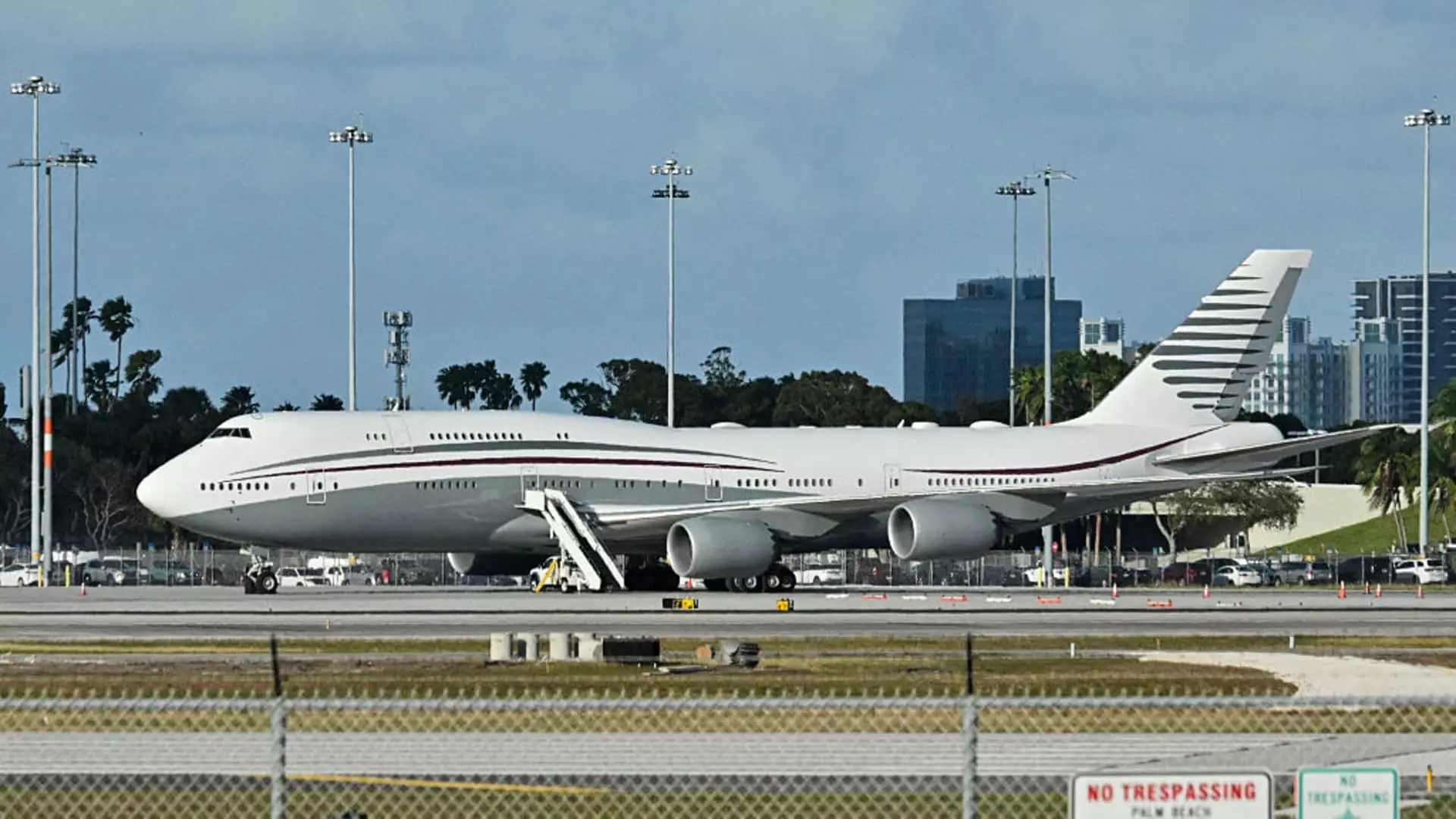The recent announcement from the Trump administration regarding the acceptance of a Boeing 747 gifted by Qatar raises a host of intricate ethical questions. The Pentagon’s acceptance of the luxurious aircraft, touted by Trump as “a great thing,” is anything but straightforward. This situation illustrates a growing tension in American politics, where the boundaries of propriety are increasingly blurred by the allure of political gifts and the murky waters of international relations. The question at hand is: has the line been crossed from diplomatic gesture to a coercive tool in the grand political game?
Security versus Style: A Costly Proposal
While the Pentagon spokesperson insists on adhering to federal guidelines, the reality is far murkier. Transforming this 13-year-old Qatari jet into the new Air Force One is not just a simple refurbishment; it comes with estimates of over $1 billion in potential costs and years of work. This outlandish expense raises eyebrows and elicits skepticism about the decision-making process. Why take on such a project when the country is already bankrolling Boeing’s delays in delivering new aircraft? One can’t help but wonder if this decision is merely a vanity project for Trump’s administration, overriding practicality in favor of flashy optics.
Moreover, Trump’s statements during a contentious meeting with South African President Cyril Ramaphosa about the jet, juxtaposed with his unsubstantiated claims of “genocide” against white people in South Africa, showcase the administration’s reckless rhetoric. It brings to light a disturbing trend where political debates are marred by incendiary comments that only serve to deflect from serious matters at hand.
Accusations of Bribery: A Political Quagmire
The jet’s acquisition has sparked fury among Democrats and ethics watchdogs alike, with claims that accepting such a gift reeks of bribery. Senate Minority Leader Chuck Schumer has gone so far as to label this action a stain on the presidential office, vowing to challenge Trump’s political nominees in retaliation for what he deems a shadowy deal. The charge that Qatar’s offering could compromise the integrity of the presidency isn’t taken lightly; it reflects a deeper, systemic issue concerning foreign influence and the sanctity of political office.
Even within Republican ranks, there are dissenting voices. Senator Susan Collins articulated concerns regarding potential national security risks and the overarching ethical implications of this exchange. The very premise of accepting gifts and the optics surrounding them can erode public trust in government, positioning it precariously on a slippery slope.
Cultivating an Image: Vanity Over Viability
It seems the Trump administration’s preoccupation with appearances could overshadow crucial decisions that directly affect U.S. security and ethical governance. Rather than donning a crown of perceived grandeur with a shiny new Air Force One, the focus should rightly be on delivering a reliable and secure aircraft for the president’s travels. Yet, with the lack of tangible timelines from Boeing regarding the new planes, embracing a gift from a foreign government appears to be a risky diversion that has drawn widespread scrutiny.
In many instances, the acceptance of gifts from foreign dignitaries is often treated delicately, rooted in the understanding of long-term relationships between nations. However, semantic debates surrounding the nature of this specific gift and its implications reveal the fragility of these relationships under the current administration. What should be a robust and transparent dialogue is dissipating into fodder for political opportunism, further exacerbating divisions among political factions.
As we observe this unfolding saga, the crux of the matter boils down to a deeper reflection on what it means to lead ethically and responsibly in today’s political climate. The advent of Qatar’s lavish gift takes on a weight far beyond its monetary value, embodying a complex interplay between governance, national security, and international diplomacy. It raises an uncomfortable moral inquiry: just because a leader can accept lavish gifts, does that mean they should? The repercussions of this decision are likely to be felt far beyond the walls of the White House, challenging the integrity of American leadership on the world stage.


Leave a Reply